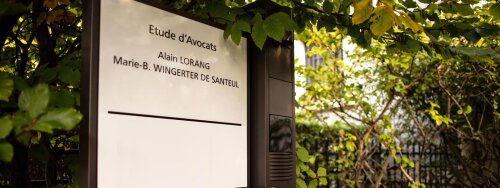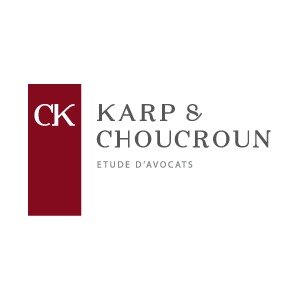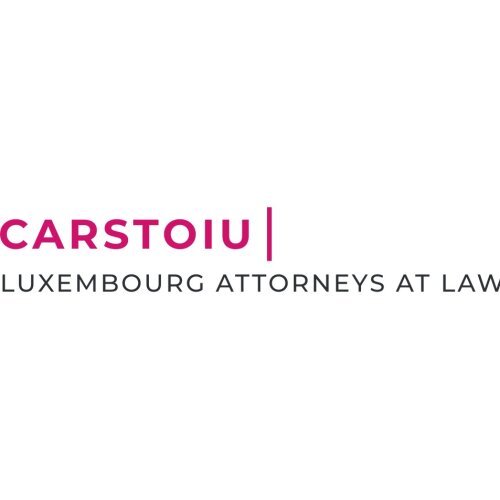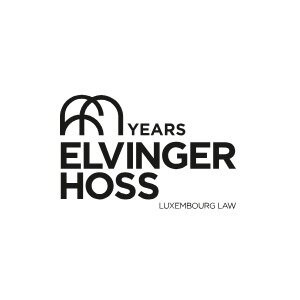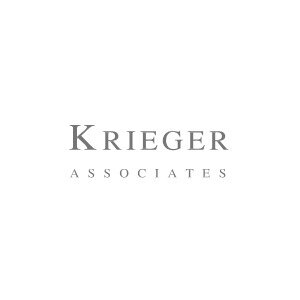Best Conveyancing Lawyers in Luxembourg
Share your needs with us, get contacted by law firms.
Free. Takes 2 min.
Free Guide to Hiring a Real Estate Lawyer
Or refine your search by selecting a city:
List of the best lawyers in Luxembourg
About Conveyancing Law in Luxembourg
Conveyancing in Luxembourg refers to the legal process of transferring property ownership from one party to another. This process involves the preparation, verification, and execution of documents required to ensure the legal exchange of property titles, often including houses, apartments, and land. In Luxembourg, conveyancing is a formal legal procedure overseen by notaries, who play a central role in ensuring that the transfer of property complies with all applicable laws and regulations.
Why You May Need a Lawyer
There are several situations where the assistance of a specialized lawyer or a notary is necessary for conveyancing in Luxembourg. If you are buying or selling real estate, a lawyer can help ensure that your rights and interests are protected throughout the process. Legal expertise may also be critical when dealing with complex transactions involving inheritance, shared ownership, mortgages, or disputes between parties. Assistance is also useful for non-residents unfamiliar with Luxembourg's property laws or those dealing with cross-border transactions.
Local Laws Overview
Luxembourg’s conveyancing laws are distinct due to the country’s specific legal framework. Here are some key aspects:
- All property transfers must be notarized. A notary drafts and authenticates the sale deed and registers the transaction with public authorities.
- Preliminary agreements, such as a "compromis de vente" or promise to sell, are commonly used and may be binding.
- Foreign nationals can generally purchase property in Luxembourg, but may face additional administrative steps compared to residents.
- The buyer typically pays property registration duties, notary fees, and related charges.
- Mortgage agreements are also formalized with the involvement of a notary.
- Tax implications, including registration and land transfer taxes, need to be considered before finalizing a sale.
- Property boundaries and title searches must be verified to prevent future disputes.
- Inheritances and gifts of property may be subject to different procedures and taxes.
Frequently Asked Questions
What is the role of a notary in conveyancing in Luxembourg?
A notary is a qualified legal professional who prepares, supervises, and authenticates the formal deed of sale and registers the property with local authorities. They ensure the legality of transactions and protect the interests of all parties involved.
Can foreigners buy property in Luxembourg?
Yes, foreigners are generally allowed to purchase property in Luxembourg. However, they may need to comply with certain administrative requirements and should seek legal advice to navigate the process.
What taxes are involved when buying property?
The main taxes include a registration fee, transcription fee, and in some cases, value-added tax (VAT) for new properties. These are typically paid by the buyer and vary depending on the property's location and type.
What is a "compromis de vente"?
A "compromis de vente" is a preliminary contract that commits both the buyer and seller to the transaction, outlining the agreed terms and conditions. It becomes legally binding once signed by both parties.
Who pays the notary fees?
Usually, the buyer pays the notary fees and related costs in Luxembourg, unless otherwise agreed between the parties.
How long does the conveyancing process usually take?
The process generally takes between two to three months, depending on factors such as the complexity of the transaction, financing arrangements, and administrative procedures.
Is a title search necessary in Luxembourg?
Yes, a title search is essential and is handled by the notary. It ensures there are no disputes, encumbrances, or legal issues affecting the property.
What happens if one party withdraws after signing the "compromis de vente"?
If a party withdraws without a legal reason, they may be required to pay a penalty specified in the agreement, usually a percentage of the sale price.
What protection do buyers have against undisclosed defects?
Buyers are generally protected against hidden defects (vices cachés) under Luxembourg law. If major issues are discovered after the sale, buyers may have legal recourse against the seller.
Is professional legal advice necessary for all conveyancing matters?
While the use of a notary is mandatory for formalizing transactions, consulting a lawyer is advisable for complex cases, disputes, or when dealing with cross-border or inheritance issues.
Additional Resources
For further assistance, the following resources and organizations can be helpful:
- Chambre des Notaires du Grand-Duché de Luxembourg - Provides lists of registered notaries and guidance on conveyancing matters.
- Ministry of Justice (Ministère de la Justice) - Offers information on legal requirements for property transactions.
- Luxembourg Real Estate Chamber (Chambre Immobilière)
- Luxembourg Consumer Protection Organization (Union Luxembourgeoise des Consommateurs or ULC)
- Local municipalities or "mairies" - For information on land zoning and planning regulations.
Next Steps
If you are considering buying, selling, or transferring property in Luxembourg, start by researching notaries who are experienced in the type of transaction you require. Gather all relevant documents pertaining to the property and your identity. Prepare a list of questions or concerns for your legal advisor. Reach out to a qualified notary or lawyer who can guide you through the process, explain potential costs and timelines, and ensure your interests are legally protected throughout the conveyancing process. Early legal advice can prevent costly errors and safeguard your investment.
Lawzana helps you find the best lawyers and law firms in Luxembourg through a curated and pre-screened list of qualified legal professionals. Our platform offers rankings and detailed profiles of attorneys and law firms, allowing you to compare based on practice areas, including Conveyancing, experience, and client feedback.
Each profile includes a description of the firm's areas of practice, client reviews, team members and partners, year of establishment, spoken languages, office locations, contact information, social media presence, and any published articles or resources. Most firms on our platform speak English and are experienced in both local and international legal matters.
Get a quote from top-rated law firms in Luxembourg — quickly, securely, and without unnecessary hassle.
Disclaimer:
The information provided on this page is for general informational purposes only and does not constitute legal advice. While we strive to ensure the accuracy and relevance of the content, legal information may change over time, and interpretations of the law can vary. You should always consult with a qualified legal professional for advice specific to your situation.
We disclaim all liability for actions taken or not taken based on the content of this page. If you believe any information is incorrect or outdated, please contact us, and we will review and update it where appropriate.
Browse conveyancing law firms by city in Luxembourg
Refine your search by selecting a city.



